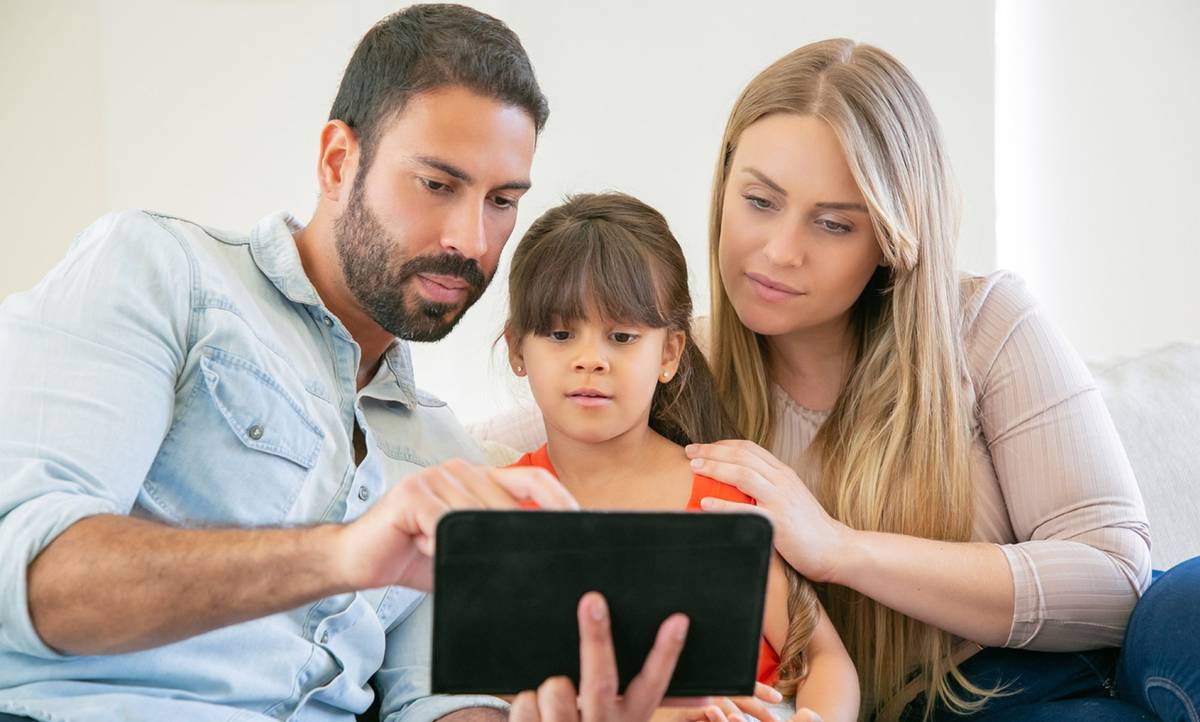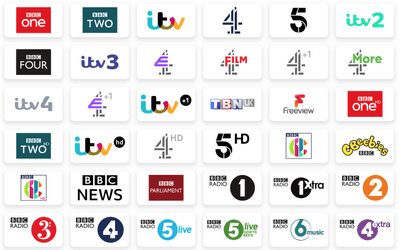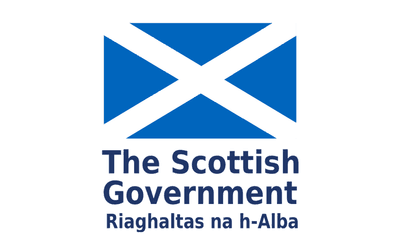Have regular chats about your children's online activity
Take an interest in what your children are doing online, who they are communicating with, what apps or sites they are visiting and what games are they playing. Listen to your child and reach an agreement about what is right for you and your family. Be sure they know they can come to you when they are worried about something they have seen on the internet or if they feel they are being bullied online. Discuss how to report inappropriate or offensive posts and how to block someone if necessary.
Keep screens and devices where you can see them
It is a good idea to try and keep computers in a central location in the home where it is easier to keep an eye out on what your child is doing online and what they are viewing. For mobile devices you can set them to forget Wi-Fi passwords so your children can’t go online without you knowing. You can also try to make an agreement that there are no tablets, laptops or gaming in bedrooms.
Teach your child to be cyber smart
Remind your child the internet is not private and anything they post is permanent. Once information is shared publicly it can be used in ways you may not expect and cannot control.
Teach your children to stay in control of their digital footprint by only sharing with people they know and trust, rather than posting to all their friends on social media. Encourage them to be selective and use the privacy settings on any social media platforms they use.
As adults we know that some people online are not who they say they are ,but children and young people can be very naïve about who they are actually chatting to so you need to teach them to be cyber wise from a young age.
Protect your personal information and location
Most devices and networks have features which can make your location public and can lead someone directly to you. Make sure you turn off these features to protect your privacy and keep your children safer. Be aware that digital photos can contain data about the time, date and location of when it was taken which may reveal more than you realise. Some social media platforms hide this information but just be aware of how much your children are sharing and what you are happy with.
Remind your children not to give out any personal information like their name, address or school and encourage them to ask themselves before posting anything if the information or photo is something they would share with a stranger. If the answer is no they should not be posting it.
Set a time limit
Get your children involved in the process of setting age appropriate limits on how much time they can spend online, at what times and on which platforms.
Use parental controls
Innocent searches online can lead to not-so innocent results so it is important to know how to use parental controls and search restrictions offered by internet service providers, web browsers and devices. Make sure you regularly update the parental controls. Many Internet providers have in-built parental controls that can be enabled at the account level by the account owner. These do not require any configuration on the devices and automatically block the most harmful content.
What parental controls do broadband providers offer?
Many broadband providers offer free parental controls with their plans, including: BT, Sky, TalkTalk, Virgin Media, Plusnet and Vodafone.
BT Parental Controls has three predefined filter levels, strict, moderate and light, that will be applied to any device connected. There is also an option for parents to customise filters to suit their households and add specific sites to either an allowed or blocked list. They have a timer setting that enables you to set the time of day you want the filters to be active. They also have a homework setting which ensures children don't get tempted to browse sites that will distract them from their work.
With Sky's Broadband Shield, you can block up to nine categories such as pornography, violence and online dating, as well as being able to block individual websites on all devices connected to your Sky broadband. Or you can create blanket restrictions by age, choosing from PG, 13 or 18. It comes with Safe Search which filters explicit content from Google and Bing search results.
Talk Talk's KidsSafe parental controls also offers nine categories you can choose to block, as well as the ability to block individual websites. Homework Time enables you to temporarily block sites that may stop your children doing their school work, such as gaming sites and social media during a specified time.
Virgin Media uses its own custom security package, Web Safe, which automatically blocks malicious or unsuitable content. It also offers further filters which can block sites relating to social media, gambling and weapons. You can create exceptions within these categories and also block specific websites outside of these categories. You can use the timer feature to only block access to these sites at certain times of day.
Plusnet uses its Plusnet Safeguard to block content by category and also by specific website. Parents can block topics such as violence, hate and intolerance, and pornography. You can also allow up to 30 websites within the parental control that you believe to be harmless which your child can access without limitation. It also has a timer function that allows you to switch off the filters at certain times of the day or night
Vodafone offers Supersafe with its home broadband, which is the minimum level advised for parents. It blocks access to any sites containing adult content, as well as any sites featuring violence, hate, tobacco, drugs, crime, alcohol, gambling and online dating. The highest level of control, UltraSafe also blocks online games, social media, and websites with information on sex education.




